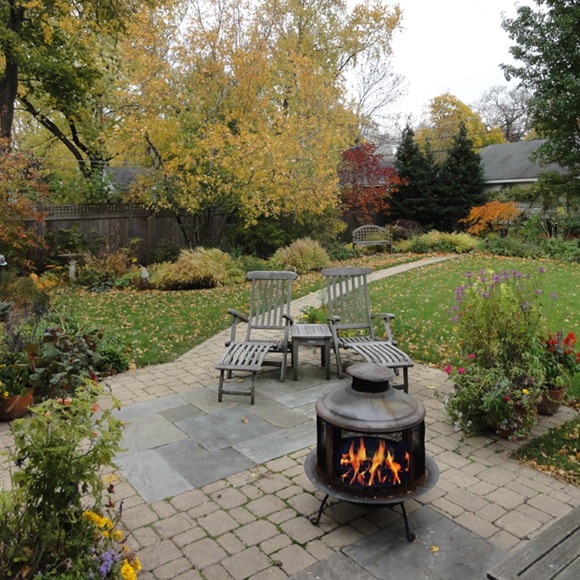Another summer’s behind us, and autumn is the time to be preparing your garden for winter. Our winters can be long, dry and brutal. Here’s what you can do now and in the coming weeks to help your garden endure the cold and snowy months ahead.
Lawns:
- If you fertilize only once a year, now is the best time to do it.
- September and October are the best months to apply broadleaf weed control.
- Mow until the grass stops growing, usually sometime in November. The last mow should be short, approximately at a two-inch blade height.
- Rake and dispose of all leaves and other debris before winter to prevent diseases.
Trees and Shrubs:
- Apply a 2-inch layer of organic mulch, which reduces weeds, controls soil erosion, and maintains soil moisture around roots. When applying, keep mulch at least 6 inches away from the tree trunk to prevent trunk rot. Apply after a hard frost in the fall.
- Fertilize trees and shrubs when dormant in late October or early November, before the ground freezes.
- Watering plants deeply is the single best thing you can do to get plants through the winter. Watering helps prevent desiccation, or drying out caused by water loss. Soak plants well when temperatures are above 50 degrees Fahrenheit; you can water usually right up until Thanksgiving.
- Certain trees and shrubs benefit from fall pruning, which also adds a preventive measure to reduce ice and snow damage.
Perennials:
- Cut back plants 3-4 inches above ground after they have been touched by frost.
- Apply a 3-inch layer of mulch after the ground has frozen. Shredded leaves (done with your lawnmower) or compost is ideal for mulching, as it won’t need to be removed. Evergreen boughs laid on the ground also offer winter protection, are attractive and fairly easy to remove in spring.
Annuals and Bulbs:
- You can overwinter certain annuals such as Begonia, Impatiens and Coleus by taking cuttings and propagating them. Be wary of bringing the entire plant in, as it is likely to be infested with insects. Shade-loving outdoor annuals will require full sun indoors.
- Dig up tender bulbs such as Dahlia and Gladiola after leaves have been blackened by frost. Any soft bulbs should be discarded. Allow them to dry, and store in vermiculite or peat in a cool, dry place.
Taking these steps now will give your garden a great start next spring, for another summer of entertaining, barbecuing and relaxing under the sun.

